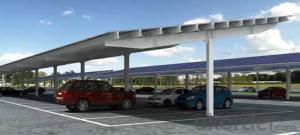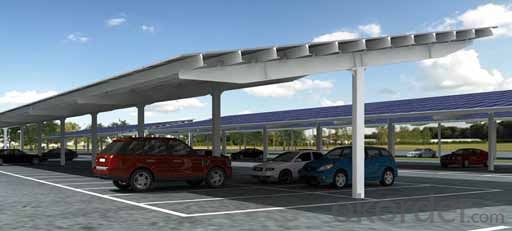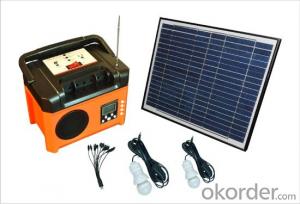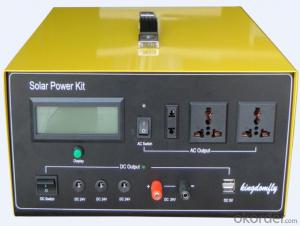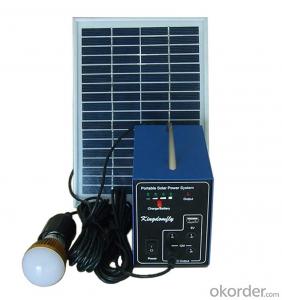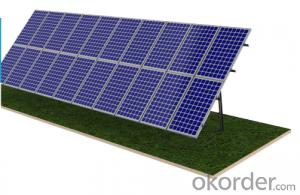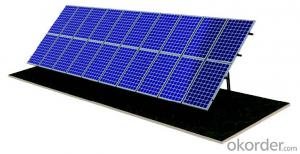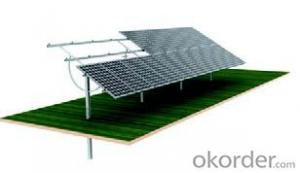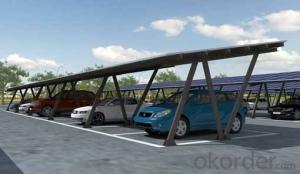Solar Energy Systems Orange - Solar Carport System Single Pile
- Loading Port:
- China Main Port
- Payment Terms:
- TT OR LC
- Min Order Qty:
- -
- Supply Capability:
- -
OKorder Service Pledge
Quality Product, Order Online Tracking, Timely Delivery
OKorder Financial Service
Credit Rating, Credit Services, Credit Purchasing
You Might Also Like
Product Features
• No location limitation
• Simple structure, easy & quick installation
• Use standard components, low maintenance cost
• Easy to be packaged, minimized transportation cost
• Removable & reusable
• With waterproof & non-water proof solutions for choice
• Customization available
- Q: How do solar energy systems impact energy reliability?
- Solar energy systems can greatly enhance energy reliability by diversifying the energy mix. By harnessing the power of the sun, solar energy systems offer a clean and renewable source of electricity, reducing dependence on traditional fossil fuels. This diversification helps to mitigate the risks associated with potential energy supply disruptions, enhancing overall energy reliability for communities and reducing the impact of power outages.
- Q: Can a solar energy system be installed on a roof?
- Yes, a solar energy system can be installed on a roof. In fact, rooftop solar installations are quite common and popular. By installing solar panels on a roof, homeowners and businesses can harness the power of the sun to generate clean and renewable energy. This not only helps reduce electricity bills but also reduces reliance on fossil fuels and contributes to a more sustainable future. Rooftop solar installations are typically designed to maximize sunlight exposure and can be installed on various types of roofs, including flat roofs and sloped roofs. With advancements in technology and the availability of various mounting options, solar panels can be securely and efficiently installed on roofs of residential and commercial buildings.
- Q: Can solar energy systems be installed on sloped surfaces?
- Yes, solar energy systems can be installed on sloped surfaces. In fact, sloped surfaces are often preferred for solar panel installations as they provide better access to sunlight throughout the day. Mounting systems can be designed to accommodate various angles and inclinations, allowing solar panels to effectively capture solar energy on sloped surfaces.
- Q: How do solar energy systems impact energy policy and regulation?
- Solar energy systems have a significant impact on energy policy and regulation by promoting the adoption of renewable energy sources and reducing dependence on fossil fuels. Governments and regulatory bodies often implement policies and regulations that incentivize the installation and use of solar energy systems, such as feed-in tariffs or tax credits. This helps to accelerate the transition to clean energy and achieve sustainability goals. Additionally, solar energy systems can influence the development of grid infrastructure and energy storage technologies to accommodate the intermittent nature of solar power, leading to a more resilient and decentralized energy system.
- Q: Can a solar energy system be used for charging electric vehicles?
- Yes, a solar energy system can definitely be used for charging electric vehicles. Solar panels, which capture sunlight and convert it into electricity, can be installed on rooftops, carports, or open spaces to generate clean and renewable energy. This energy can then be used to charge electric vehicles, eliminating the need for traditional fossil fuel-based charging methods. Solar-powered charging stations are becoming increasingly popular and are being installed in various locations, such as parking lots, highways, and residential areas, to support the growing demand for electric vehicles. By utilizing solar energy for charging electric vehicles, we can significantly reduce greenhouse gas emissions and dependence on non-renewable energy sources, thus contributing to a more sustainable and environmentally friendly transportation system.
- Q: How do I maintain a solar energy system?
- To maintain a solar energy system, regular cleaning and inspection of the panels is crucial. Remove any debris or dirt that may obstruct sunlight absorption. Additionally, check the wiring and connections periodically to ensure they are secure and free from damage. Monitor the system's performance and keep track of any changes in energy production. Lastly, it is advisable to schedule professional maintenance once or twice a year to address any potential issues and optimize the system's efficiency.
- Q: Can solar energy systems be used in areas with heavy snowfall?
- Yes, solar energy systems can be used in areas with heavy snowfall. However, the performance and efficiency of these systems may be affected during the winter months due to reduced sunlight exposure and snow accumulation on the panels. Regular snow removal and tilt adjustments can help maximize their effectiveness in such areas.
- Q: Can solar energy systems be used in powering research farms or agricultural laboratories?
- Yes, solar energy systems can certainly be used to power research farms or agricultural laboratories. Solar panels can generate electricity which can be used to power various equipment and machinery used in these facilities, such as irrigation systems, lighting, climate control systems, and other electrical devices. By utilizing solar energy, these agricultural facilities can reduce their reliance on fossil fuels and significantly lower their operational costs while also contributing to a more sustainable and environmentally friendly approach to farming and research.
- Q: What are the benefits of using solar energy?
- There are several benefits of using solar energy. Firstly, it is a renewable and sustainable source of energy, meaning it does not deplete natural resources. Secondly, solar energy helps reduce greenhouse gas emissions, contributing to a cleaner and healthier environment. Additionally, using solar energy can lead to significant cost savings on electricity bills, as it reduces dependence on traditional utility companies. Furthermore, solar panels require minimal maintenance and have a long lifespan, making it a reliable and durable energy solution. Lastly, solar energy promotes energy independence, as it allows individuals and communities to generate their own power, reducing reliance on external sources.
- Q: How much do solar energy systems cost?
- The cost of solar energy systems can vary depending on various factors such as the size of the system, location, and specific requirements. Generally, the cost can range from a few thousand dollars for smaller residential systems to tens of thousands of dollars for larger systems or commercial installations. It is recommended to consult with a solar energy provider to get a more accurate estimate based on individual needs.
Send your message to us
Solar Energy Systems Orange - Solar Carport System Single Pile
- Loading Port:
- China Main Port
- Payment Terms:
- TT OR LC
- Min Order Qty:
- -
- Supply Capability:
- -
OKorder Service Pledge
Quality Product, Order Online Tracking, Timely Delivery
OKorder Financial Service
Credit Rating, Credit Services, Credit Purchasing
Similar products
Hot products
Hot Searches
Related keywords
